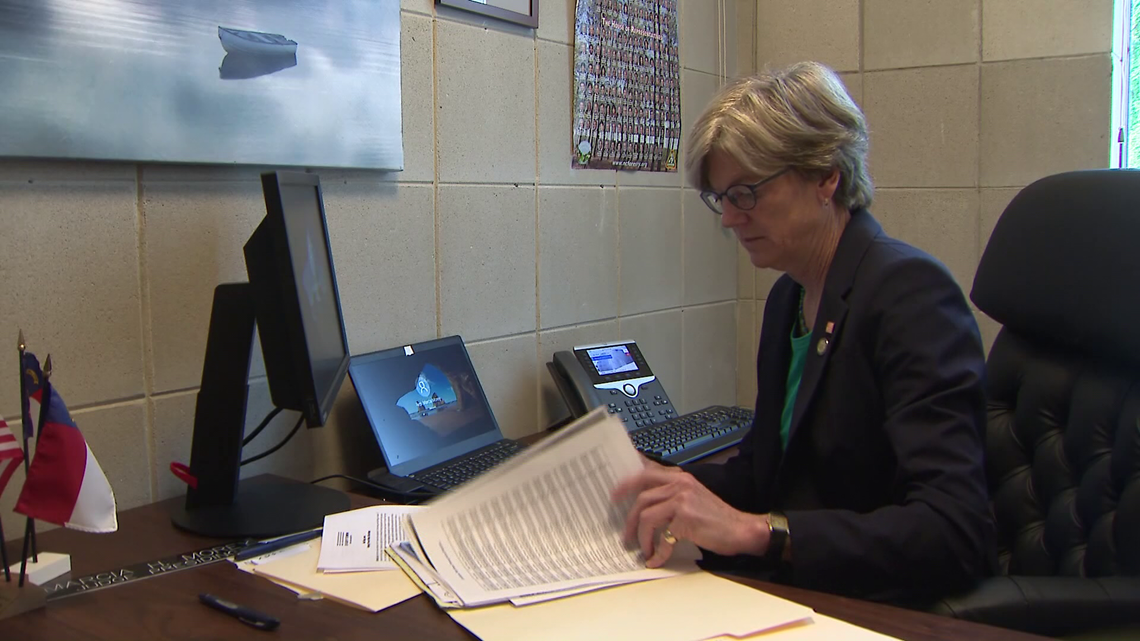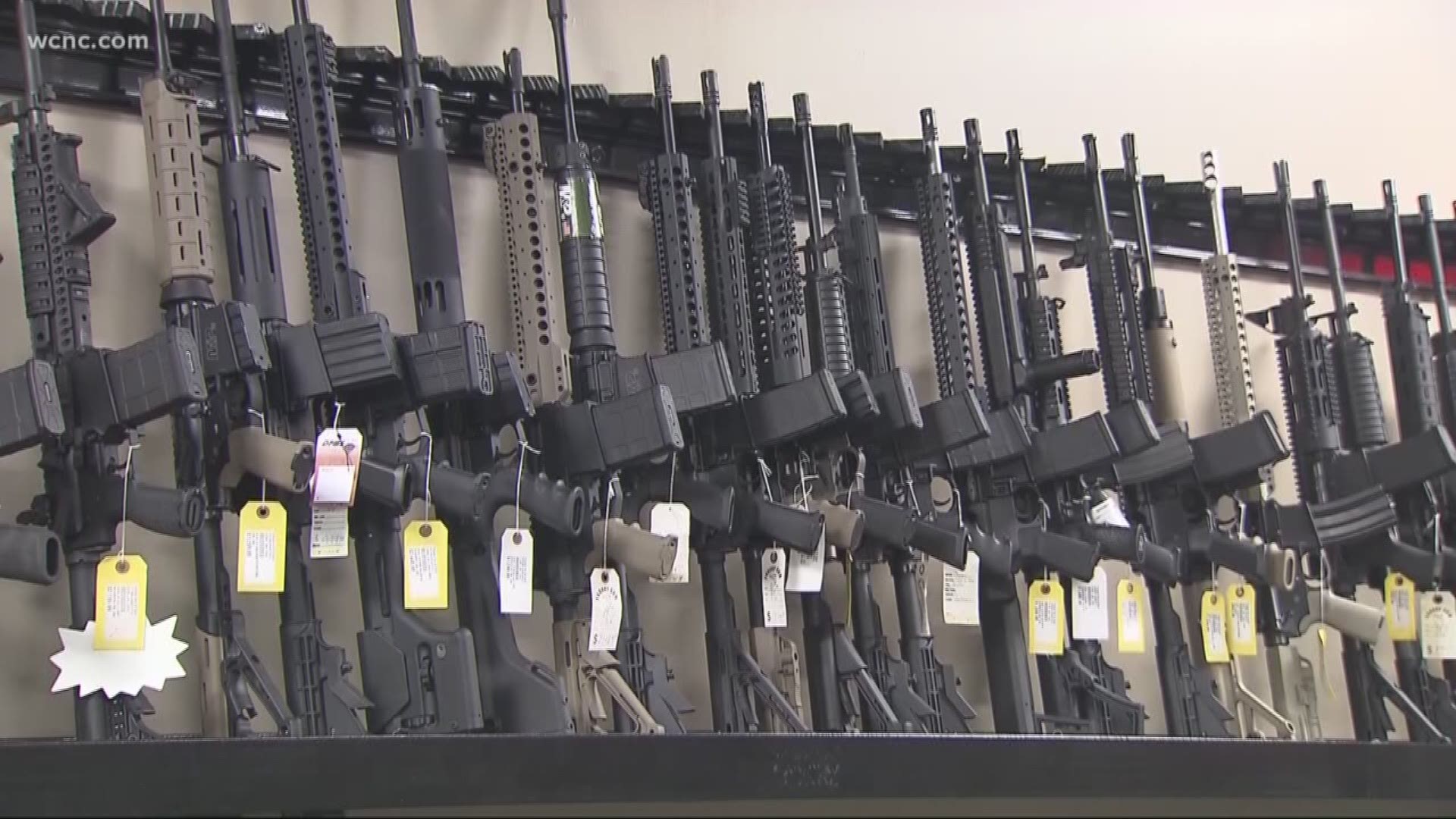CHARLOTTE, N.C. -- North Carolina lawmakers are working to pass a bill that would allow police to confiscate legally-owned guns from people with dementia or Alzheimer's.
It gives law enforcement an expedited way to seize guns from people who may be prone to violence or suicide.
“This is sort of like a drivers license, when do you take someone’s drivers license away,” said Larry Hyatt, owner of Hyatt Coin and Gun in Charlotte. “If there’s truly a real danger reason that’s one thing but just because someone’s older and can’t remember that’s not a good enough reason.”
The so-called “red flag bill” applies not only to people with dementia but really anyone who poses a danger to themselves or others.
The legislation, filed after the Parkland (Fla.) school shooting, allows concerned citizens to quickly obtain an emergency court order to have a family member’s guns seized if that person shows signs that they might harm themselves or someone else.
“This really is a case for family members taking the guns and locking them up…and solve this problem without getting the government involved,” Hyatt said.


But the sponsor of the bill, Rep. Marcia Morey (D.-N.C.), says the government getting involved is the best way to save lives.
“This is a failsafe way to try to make sure no firearms are within the reach of someone who suffering from either dementia or a mental illness,” she said. “I’ve had many emails, many calls from people saying I wish we could get this passed, I’m worried about my father, my grandfather, my grandmother.”
The bill, touted as a way to prevent mass shootings, now is being considered in this new light after a Charlotte judge released 84-year-old Jim Norris last week.
Norris was accused of shooting and killing his wife as part of a murder-suicide pact.
Police say they suffered from dementia. According to the Charlotte Observer in July, Norris was deemed incapable of standing trial and the charges were dropped.
“That’s a horrible tragedy and this is exactly what the bill is intended to try to stop,” Rep. Morey said.
Still, others say dementia-related violence is too rare to justify this kind of legislation.
“We’ve got suicides and things like that which is real difficult, but people with dementia and Alzheimer’s have just not been on the crime scene,” Hyatt said.

